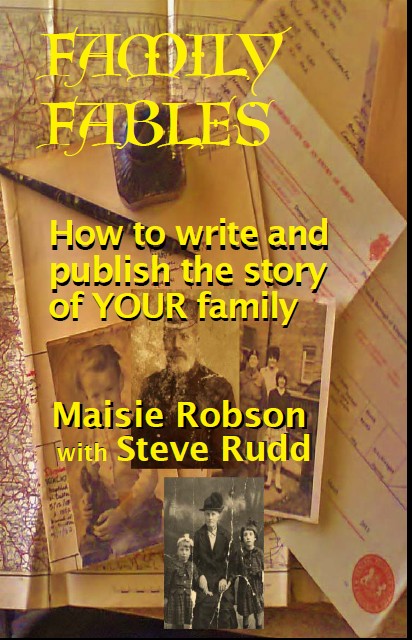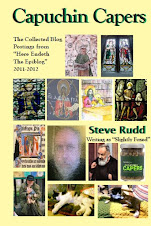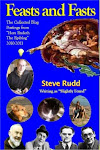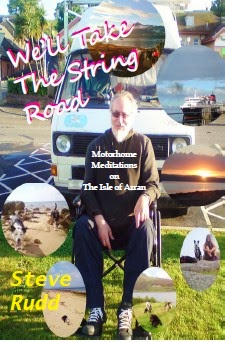It has been a busy week in the Holme Valley, watching the rain fall. God obviously pulled out his bathplug and flushed his loo simultaneously this week, because the entire contents of heaven’s water-tank in the attic crashed down on the West Riding of Yorkshire over the course of three days. “The rain, it raineth every day”, as the bard put it in “Twelfth Night”.
Fortunately, being abut 200 feet up on the side of a 45 degree valley slope, we are not prone to flooding. We get the slightly more startling, but less damaging phenomenon of rivers forming across the garden, as the water drains down into the River Holme. Apparently, otters (of all things) have been spotted frolicking in its waters, and if this is true, I bet they had some gala days this week. Elsewhere, of course, it was the usual misery. A narrow-boat sank at its moorings on the Yorkshire Ouse, because the waters rose too far, too fast, and no-one was there to slacken off its mooring rope. Desperately sad, as I like narrow-boats, and canals, although not as much as Deb, who often says she’d like to live on one. Perhaps she’s changed her mind after seeing that on the news. Whatever other perils might beset our house, weather wise, it is unlikely to sink with all hands to the bottom of a canal. Touch wood.
The weather has brought out the predictable political name-calling on all sides, with cuts to council budgets being cited as a (probably correctly attributed) cause of lack of flood defences. Several people have suggested that there should be a “national flood defence fund” into which we all pay. I have news for these people; there is, already - it’s called Income Tax, it’s just that The Blight chooses to spend it on firing missiles at Libya and giving tax cuts to the insanely rich, instead.
Something which I find particularly irksome whenever I have to do a VAT return. This week I finally signed off the 2011 year-end accounts, a tragedy as usual, and also had to grapple with the online VAT-return submission page of the Inland Revenue, hampered by the fact that the ID code and password had died at the precise instant when the motherboard of my previous laptop was fried by the lightning surge. My resentment at having to do this inherently boring and meaningless crap is invariably heightened by the knowledge, as I said in last week’s blog, that big companies, who can afford to pay, are actually being let off paying left, right and centre, simply because HMRCE can’t be arsed to take them to court.
While the rain has been busy turning the conservatory windows into a car-wash, complete with the attendant noise, Matilda’s introduction to the outside world, in the form of the garden, has been necessarily delayed somewhat, but yesterday, with the advent of a brighter, clearer day, she did, finally, take her first tentative steps out onto the decking, outside the conservatory door, accompanied by Deb. Ears back, and belly close to the ground, she slunk along, and crept warily round the corner, ready to skedaddle back to safety at the slightest threat. And so did the cat. Eventually, they both tired of it and came back inside, where it was warmer. Debbie’s efforts to show Matilda the cat flap, by leaving her outside on the decking while she nipped back in and round to the inside of the cat flap to call her through it, were undermined somewhat by the fact that whenever Debbie nipped back in through the door, Matilda did likewise, and despite her substantial bulk, she can run faster than Debbie, having twice as many legs and less wind resistance. Somehow, I get the feeling that teaching Matilda to use a cat flap is going to be a long, tedious exercise. I get the feeling that teaching Debbie to use it will also be.
Recently, she’s taken to lying on the rug in front of the stove in the evening, her extensive undercarriage basking in the heat, eyes blissfully shut and front paws drawn up under her chin. (No, this bit really is about the cat).
Matilda’s trepidation doesn’t extend to nocturnal rambling, however; she’s taken to exploring more and more at night, now we’ve given her the run of the house, so much so that she woke me up this morning, wandering round yowling at the top of her porky little voice for no reason. Unfortunately, although it was technically “this morning”, it was actually 4.45AM this morning. I came through when I got up properly (much later) fully expecting to find a present of a deceased rodent, which is what I thought, at the time, would be the most likely cause of such caterwauling, but there was no victim stretched out on the rug, so God alone knows what she was doing. Unless, of course, we haven’t found it yet, and will nose it out behind the arras, in days and weeks to come.
All in all, she is a strange little being, totally different to how the vets described her, and there’s a long, long trail a-winding before she ever comes up to Kitty’s standard, if ever. But then perhaps I’m being too harsh. At one point, I probably thought that Kitty would never come up to Russell’s standard, but the truth is, actually, they’re all different, all individuals. And at least we saved her from the needle (assuming the vets were even telling the truth about that bit, which, in my state of post-Kitty emotional trauma, I never thought to question).
Deb’s working week has settled into a bit of a groove, now, though I still worry about the miles she is doing, servicing eight different venues, especially this week, with roads being closed all over the county and cars being abandoned in standing water. Because she likes to keep things topical, to gain her students’ interest, she often bases literacy lessons on things that have been in the news, and she chose to do one about the scandal over the intimate photos of the Duchess of Cambridge, which worked very well, and provoked a lively lesson, so much so that her line manager, who happened to be sitting in, asked if she could borrow the presentation to use the same material in another class that she taught, elsewhere. Debbie naturally agreed, and emailed the file over that same evening.
A couple of days later, Deb received an email back from her manager, Kate, thanking her, and telling her that she’d used the presentation, and it had been a great success. In fact, the class were more than usually attentive, especially at the start of the lesson, when Kate put the opening slide up on the whiteboard for all to see, and found that Debbie had entitled it, in large letters, “Kate topless photos”. (Debbie replied, saying that she hoped the class hadn’t been too disappointed).
As part of the ceremonial re-opening of the old cat flap, yesterday, I had to go through, discomboomerate, and generally sift and sort the last three archive boxes that came out of the old camper, last weekend. More of my mum and dad’s stuff, this time, though nothing particularly special, or drastic. Nothing, that was, until I opened an envelope and found a copy of my mum’s death certificate, and the bill for her funeral (£490, in 1986, which I guess was about par for the course). I’d seen it before, of course, at the time; I was actually there at the real event itself, which was many times worse than suddenly being jolted back there by opening a manila envelope in a box of archives, but nevertheless it did set me back on my metaphorical heels, somewhat, to come on it so unexpectedly. I’ve also found some delightful, joyful things as well, things of great interest. The difference is, I suppose, that the documents from (say) 1886, are a lot more remote and a lot less raw than those from 1986, and I was not present for the former, although no doubt they were just as momentous and emotional for these who were. As I said last week, time sifts all our trials, terrors and turmoils to stacks of paper. Then the paper itself crumbles and goes. What will survive of us, is love, as Pa Larkin said. Perfick.
I am glad that I have come to the end of sorting out these boxes of archives from the old camper. I feel that in some ways, the stacks of old paper have been drawing the very strength and energy out of me, but you can’t keep everything for ever. Or anything, for that matter, as time has taught me, on several occasions.
Talking of archives, today is St Jerome’s Day, apparently, according my calendar of saints. St. Jerome, who was born Eusebius Hieronymous Sophronius, very wisely changed his name to something much more memorable and easier to get onto a cheque guarantee card, and became one of the most learned of the Fathers of the Western Church. He was born about the year 342 at Stridonius, a small town at the head of the Adriatic, near the episcopal city of Aquileia. His father, a Christian, took care that his son was well instructed at home, then sent him to Rome, where the young man's teachers were the famous pagan grammarian Donatus and Victorinus, a Christian rhetorician. Jerome's native tongue was the Illyrian dialect, which brings us back again to Twelfth Night, and the rain it raineth every day, but in Rome he became fluent in Latin and Greek, and read the literatures of those languages with great pleasure.
Maybe because of this, he has become the patron saint of librarians and archivists, although the Amercian Catholic Saints directory says that:
“He acquired many worldly ideas, made little effort to check his pleasure-loving instincts, and lost much of the piety that had been instilled in him at home. Yet in spite of the pagan and hedonistic influences around him, Jerome was baptized by Pope Liberius in 360AD.”
I actually did a painting of St Jerome, once. It was when I found out that he was patron saint of librarians, and it seemed such a wacky idea (what do librarians need protecting from, anyway – card indexes falling on them, perhaps) that I decided to do a painting of St Jerome and his pet kipper. It was going to be one of a series, but I haven’t done the rest yet. Anyway, I much prefer my idea of St Jerome to any of the more conventional depictions, so I have used it to head up this particular blog. There’s no particular reason why St Jerome should have acquired a pet kipper, except I suppose it’s the sort of thing you might end up doing if you make little effort to check your pleasure-loving instincts.
Apparently, St Jerome once said "it was my custom on Sundays to visit, with friends of my own age and tastes, the tombs of the martyrs and Apostles, going down into those subterranean galleries whose walls on both sides preserve the relics of the dead." Here he enjoyed deciphering the inscriptions. He definitely sounds like somebody not to get stuck in a lift with, and his definition of pleasure loving instincts obviously differs from most people’s, yet, on the other hand, isn’t that what I have been doing myself, this last fortnight? Not necessarily the tombs of martyrs and Apostles, but certainly descending into the subterranean galleries whose walls preserve the relics of the dead.
I’ve written before about how fascinating cemeteries can be, especially those huge Victorian necropoleis (apparently that is the correct Greek plural, though I confess I had to look it up) that can be found in the decayed centres of almost every large northern city in England. Thomas Hardy, of course, famously used to take visitors down to Stinsford churchyard, some five miles east of Dorchester, “to see the interesting inscriptions on the tombs”. In due course, Hardy joined them, or at least his heart did, having been excised prior to the cremation of the remainder of his remains, which were interred in Westminster Abbey. Clare Tomalin, in her excellent book on Hardy, “A Time-Torn Man” [which always, unfortunately, brings to mind an image of Tony Robinson] relates the legend that Hardy’s heart was kept overnight, prior to its interment, at his cottage, in a biscuit tin, and that the cat got at it. If Hardy’s cat was a nocturnal wanderer like Matilda, I can well believe it.
Anyway, I digress. Having got as far as today, and having given St Jerome his due by devoting three hours of my life that I won’t get back, yesterday, to sorting out my family’s archives, I must get down to some proper work next week, no matter how depressing or tiring the prospect seems. I hope St Jerome will be suitably propitiated.
Fascinating as archives are, and as much as this time of the year makes me want to curl up in the middle of a large bundle of warm, musty old parchment and sleep until I am awakened by the first rays of spring sunshine, I have got to buckle on my armour and get going.
I have felt out of touch with the world of prayer, out of touch with spiritual things generally, since Kitty died. Well, if truth were told, since long before that. My main problem, apart from the obvious ones about forgiveness and the proselytising nature of organised religions, is the feeling that nobody is listening. That I am standing on the edge of the cliff of faith, hallooing into the fog, and no echo returns. A sign would be nice, one in a while.
Which is why I was startled, yesterday, by a small piece of the shopping brought back by Debbie. She’d helped me get rid of a load of my old financial records from 1984-1989 by burning them on the fire (in retrospect, I should just have put them all in the green bin – anybody wanting to steal my financial identity would be in for a nasty shock) and at the end of the exercise, she demanded, as payment, that I make pizza for tea. Small problem, no pizza bases, so she trundled off to Sainsburys to get some. While she was there, I remembered something else we’d need, and phoned her on her mobile to add it to the list, which is how I came to be unpacking, amongst other items, a jar of “Capuchin Capers”!
I was struck by the title, especially as Padre Pio was a Capuchin. Messages in the shopping is a bit of an obscure, occult way of receiving instructions from the great beyond, but stranger things have happened. Anyway, I quite like “Capuchin Capers” as a title. If I don’t use it as the title of my next collection of Epiblogs, I think it should be a “Carry On, Padre” film, with Bernard Bresslaw as the bilocating Italian monk.
But even stranger than that, was this passage, which I came across in a book I’ve been re-reading this week. I won’t reveal the author till the end, but as I read it, I became more and more convinced that these words were being aimed specifically at me. And that, even though I have read the book at least two or three times before, this was the first time that I had actually seen the words, and taken them in:
“The mentality which urges you never to anticipate, never to count your chickens before they are hatched, is wrong all to blazes. Let your anticipation run riot, plan and dream of things far above your grasp, reach after them in your imagination even when reality is receding, think about them always. Plan new achievements, and set about achieving them. Failure and disappointment simply don’t matter; go ahead with your dreaming, let your enthusiasm run away with you. You were made to rise and soar, and come down to earth with a bump, and rise and soar again. If you accomplish nothing else, you’ll have kept the rot and the rust away. Let me warn you: it’s the practical people who stay rooted on the earth, who make the money. But it’s the dreamers who touch the stars.”
The author of those stirring inspirational words is not some mystic guru of the new age, but a rather grumpy old git of the old age, no less than Alfred Wainwright, author of the Lake District walking guides, writing in "A Pennine Journey", in 1938. Although he did not know it at the time of writing that book, which lay neglected by him for many years and was not published until 1986, by which time he was famous, he was of course, to make a great deal of money from his dream of a set of handwritten, hand-drawn guidebooks, something no truly sane author would have contemplated. And to his credit, old anti-social curmudgeon that he seems to have been, he gave most of his millions away to animal welfare shelters in the Lake District.
So, what am I to make of these mixed messages, if St Padre Pio has truly been tampering with the shopping and Alf Wainwright is really telling me to get my arse in gear? I have no idea, but maybe it really is time I started dreaming again. Tread softly, Matilda, for you tread on my dreams…
Even More News from Dementia
1 year ago





















